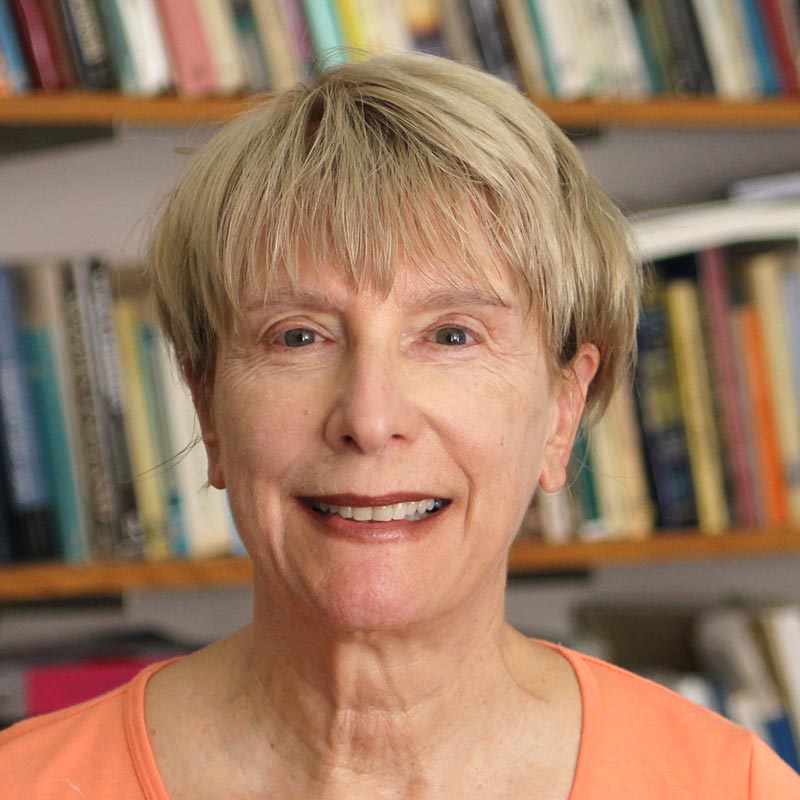
Katherine A. Lynch
Professor Emerita
Bio
Dr. Lynch is a social historian working in the fields of family history, historical population studies, and the history of charity and welfare institutions in the European past. Her latest book, entitled Individuals, Families and Communities in Europe, 1200-1800: The Urban Foundations of Western Society, provides a new interpretation of European family and society by examining the family at the center of the life of "civil society". Using evidence from European towns and cities, she explores how women and men created voluntary associations outside the family -- communities, broadly defined -- to complement or even substitute for solidarities based on kinship. It also suggests the central place that family issues played in the creation of larger communities, from the "confessional" communities of the Reformation to the national "imagined community" of the French Revolution.
Her current researches focuses on the development of French poor relief institutions in the first half of the nineteenth century, particularly in comparison to the English Poor Law system of the same period.
Dr. Lynch is also interested in questions of historical methodology, both quantitative and qualitative.
She served as Editor of Social Science History from 2001-2006, and has recently been a Visiting Professor at the University of Paris – IV (Sorbonne) and a Directeur d’Etudes at the Ecole des Hautes Etudes en Sciences Sociales.
Education
Ph.D.: Harvard University, 1976Publications
(selected)
- “Why weren’t (more) European Women ‘Missing’? History of the Family 16 (2011): 250-266.
- “Social Provisions and the Life of Civil Society in Europe: Rethinking Public and Private,” Journal of Urban History 36, 3 (2010): 285-299.
- “Theoretical and Analytical Approaches to Religious Beliefs, Values, and Identities during the Modern Fertility Transition,” in Renzo De Rosas and Frans van Poppel, eds., Religion and the Decline of Fertility in the Western World (The Hague: Springer, 2006), 1-19.
- “Behavioral Regulation in the City: Families, Religious Association, and the Role of Poor Relief,” in Pieter Spierenburg and Herman Roodenburg eds., Social Control in Early Modern Europe, 1500-1800 (Columbus: Ohio State University Press, 2004) 200-219.
- “Why weren't (many) European Women 'missing'?” The History of the Family 16 (2011): 250-266
- Individuals, Families and Communities in Europe, 1200-1800: The Urban Foundations of Western Society (Cambridge: Cambridge University Press, 2003).
- “Anthropology, Family History, and the Concept of Strategy,” (with Pier Paolo Viazzo) International Review of Social History 47 (2002): 423-452.
- “Infant Mortality, Child Neglect, and Child Abandonment in European History: A Comparative Analysis,” in Tommy Bengtsson and Osamu Saito, eds., Population and Economy: From Hunger to Modern Economic Growth (Oxford: Oxford University Press, 2000), 133-164.
- “Biometric Modeling in the Study of Infant Mortality: Evidence from Nineteenth-Century Sweden,” with Joel B. Greenhouse and Anders Brändström, Historical Methods 31, 2 (Spring 1998): 53-64.
- “Continuities and Changes in European Family Life in the Modern Period,” (with W. Robert Lee), in Jean-Pierre Bardet and Jacques Dupâquier, eds., Histoire de la populations de l'Europe, vol. II (Paris:Fayard, 1997): 103-130.
- “Risk Factors for Infant Mortality in Nineteenth-Century Sweden,” (with Joel B. Greenhouse), Population Studies 48,2 (1994): 1-17.
- “The Family and the History of Public Life,” Journal of Interdisciplinary History 24,4 (Spring, 1994): 665-684.
- “History and the Pursuit of Interdisciplinary Research in the Human Sciences,” in Peter Karsten and John Modell, eds., Methods, Discourse, and Practice in Social and Cultural History (New York: New York University Press, 1992), 57-77.
- “The European Marriage Pattern in the Cities: Variations on a Theme by Hajnal,” Journal of Family History 16,1 (1991): 79-96.
- Family, Class and Ideology in Early Industrial France: Social Policy and the Working-Class Family, 1825-1848 (Madison: University of Wisconsin Press, 1988).
- Sources and Methods of Historical Demography, (with J. Dennis Willigan) (New York: Academic Press, 1982).
Courses Taught
- France during World War II
- French History: From the Revolution to De Gaulle
- Religious Identities and Religious Conflicts in 19th Century Europe
- Freshman Seminar: Feast & Famine: Population & Family Systems in Past and Present
- Poverty, Charity, and Welfare
Department Member Since: 1980